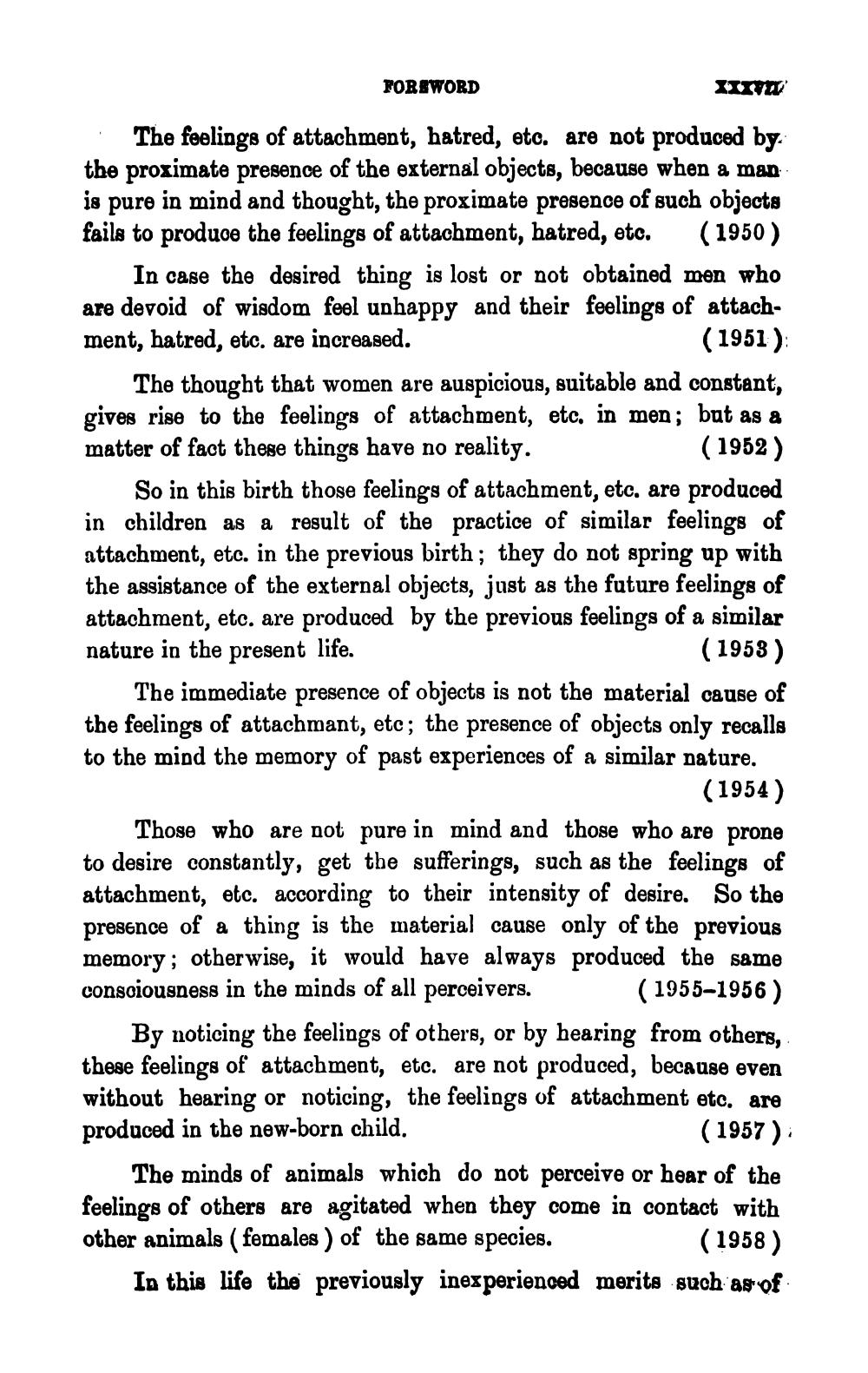________________
FOREWORD
(1952)
: The feelings of attachment, hatred, etc. are not produced by. the proximate presence of the external objects, because when a man is pure in mind and thought, the proximate presence of such objects fails to produce the feelings of attachment, hatred, etc. (1950)
In case the desired thing is lost or not obtained men who are devoid of wisdom feel unhappy and their feelings of attachment, hatred, etc. are increased.
(1951) The thought that women are auspicious, suitable and constant, gives rise to the feelings of attachment, etc. in men; bat as & matter of fact these things have no reality.
So in this birth those feelings of attachment, etc. are produced in children as a result of the practice of similar feelings of attachment, etc. in the previous birth; they do not spring up with the assistance of the external objects, just as the future feelings of attachment, etc. are produced by the previous feelings of a similar nature in the present life.
(1953) The immediate presence of objects is not the material cause of the feelings of attachmant, etc; the presence of objects only recalls to the mind the memory of past experiences of a similar nature.
(1954) Those who are not pure in mind and those who are prone to desire constantly, get the sufferings, such as the feelings of attachment, etc. according to their intensity of desire. So the presence of a thing is the material cause only of the previous memory; otherwise, it would have always produced the same consciousness in the minds of all perceivers. (1955–1956)
By noticing the feelings of others, or by hearing from others, these feelings of attachment, etc. are not produced, because even without hearing or noticing, the feelings of attachment etc. are produced in the new-born child.
(1957) The minds of animals which do not perceive or hear of the feelings of others are agitated when they come in contact with other animals ( females ) of the same species.
(1958) In this life the previously inexperienced merits such as of




